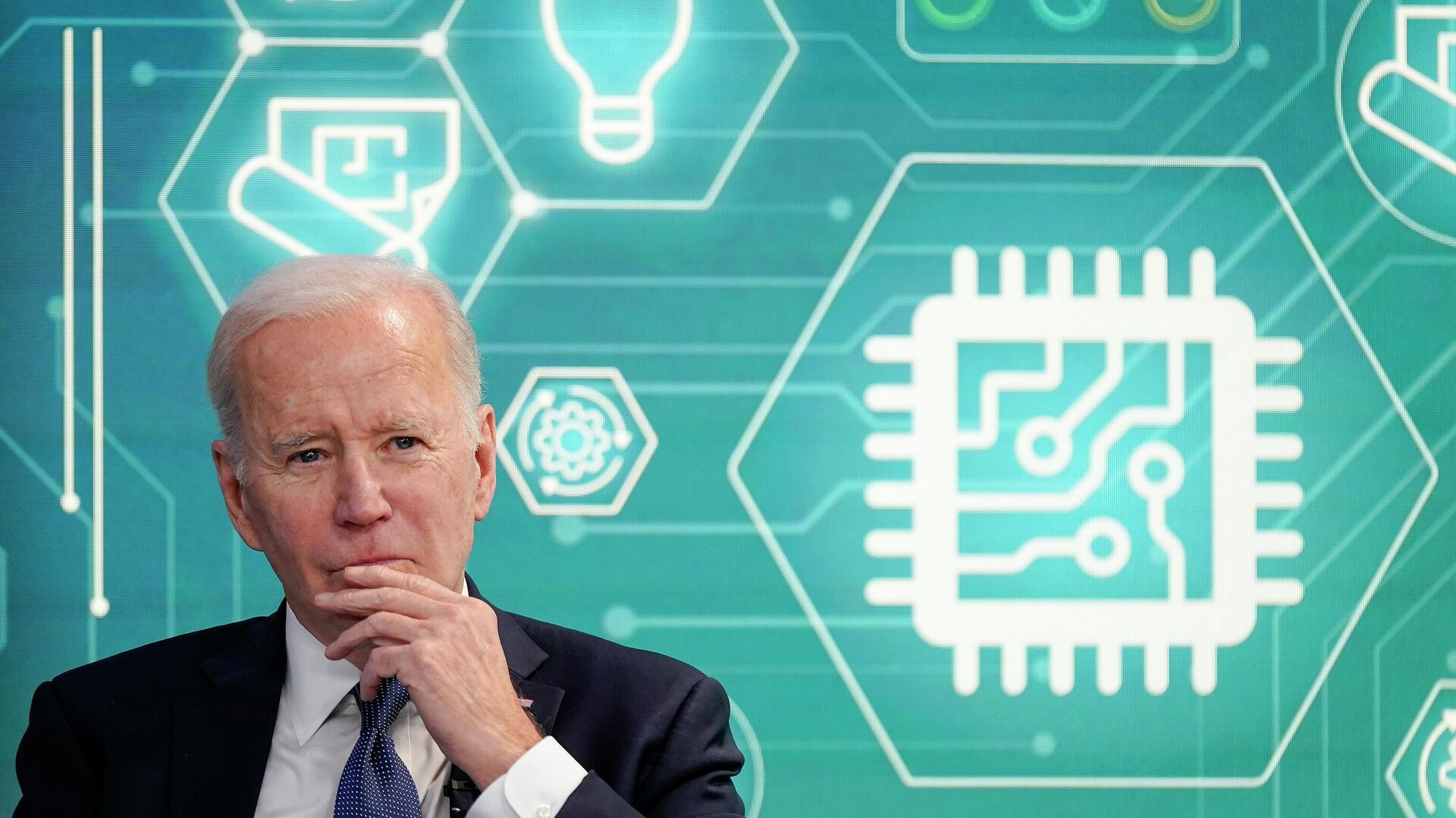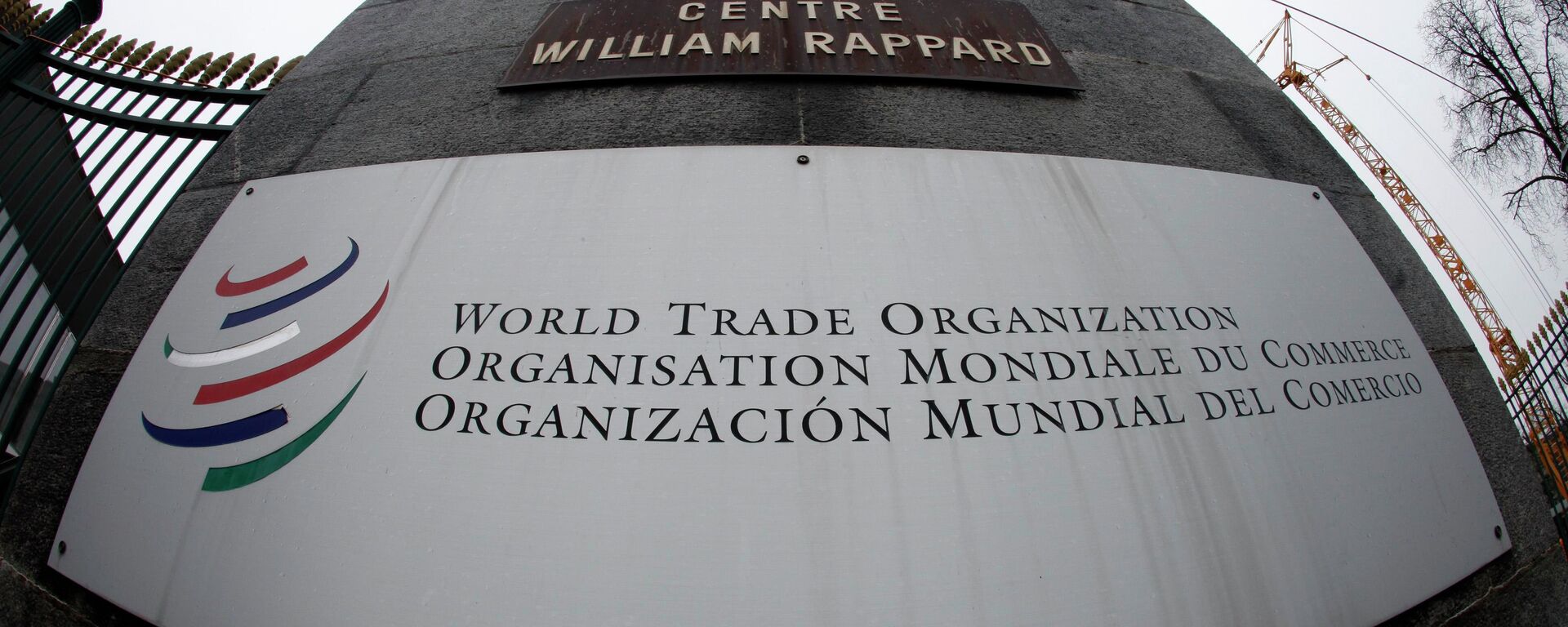https://sputnikglobe.com/20230413/us-hits-record-in-buying-chipmaking-equipment-from-taiwan-in-march-1109479312.html
US Hits Record in Buying Chipmaking Equipment From Taiwan in March
US Hits Record in Buying Chipmaking Equipment From Taiwan in March
Sputnik International
From the cheapest smartphones to high-end personal computers, Taiwan serves as a hub where most of the hardware hearts of all devices the public uses are made... 13.04.2023, Sputnik International
2023-04-13T20:23+0000
2023-04-13T20:23+0000
2023-06-19T12:46+0000
world
taiwan semiconductor manufacturing company (tsmc)
chinatradewars
semiconductors
microchip
taiwan
https://cdn1.img.sputnikglobe.com/img/07e6/09/01/1100260807_0:161:3071:1888_1920x0_80_0_0_8c56868051685fe609092d64c4398afa.jpg
US purchases of chip-making machines from Taiwan hit a record high in March as the Biden administration seeks to boost the country's semiconductor industry. Data from Taiwan's Ministry of Finance showed that exports of chip-making machines to the US surged by 42.6% from the previous year, reaching $71.3 million in total.In contrast, exports to China dropped by 33.7% for the ninth consecutive month. Taiwan is a leading hub for silicon fabrication and home to major players in the chip sector such as Taiwan Semiconductor Manufacturing Co. Fears of over-reliance on Taiwan have prompted the US to encourage more advanced chip production within its own borders. Taiwan's TSMC is setting up two fabrication plants in Arizona, backed by subsidies and local government support.Japan had recently decided to restrict exports of 23 types of semiconductor manufacturing equipment, making the registration procedure more complicated for exports to China and other countries not on the whitelist.China has warned Japan that it will take strong measures to protect its legal rights and interests if Tokyo imposes export controls on semiconductor manufacturing equipment.China, which is the world's largest semiconductor market and export destination for Japanese semiconductor manufacturing equipment, said that Japan's proposed measures were "essentially harmful to China" and were taken "under the coercion of certain countries."The Chinese Ministry of Commerce urged Japan to "listen to the voice of reason" and work to protect the stability of global production and supply chains in the semiconductor industry.The US has concerns about China's growing technological capabilities and its potential to challenge US dominance in key areas such as artificial intelligence, 5G networks, and semiconductor manufacturing. China has made significant investments in developing its semiconductor industry, which is crucial for the production of microchips that power everything from smartphones to computers to advanced weapons systems. However, the US sees China's efforts to acquire advanced microchip technologies as a threat to its economic and national security interests, and believes that restricting China's access to these technologies is necessary to protect US strategic advantages.
https://sputnikglobe.com/20230405/china-urges-wto-to-examine-us-led-restrictions-on-chip-exports-1109136804.html
taiwan
Sputnik International
feedback@sputniknews.com
+74956456601
MIA „Rossiya Segodnya“
2023
Sputnik International
feedback@sputniknews.com
+74956456601
MIA „Rossiya Segodnya“
News
en_EN
Sputnik International
feedback@sputniknews.com
+74956456601
MIA „Rossiya Segodnya“
Sputnik International
feedback@sputniknews.com
+74956456601
MIA „Rossiya Segodnya“
taiwan semiconductor manufacturing company (tsmc), chinatradewars, semiconductors, microchip, taiwan
taiwan semiconductor manufacturing company (tsmc), chinatradewars, semiconductors, microchip, taiwan
US Hits Record in Buying Chipmaking Equipment From Taiwan in March
20:23 GMT 13.04.2023 (Updated: 12:46 GMT 19.06.2023) From the cheapest smartphones to high-end personal computers, Taiwan serves as a hub where most of the hardware hearts of all devices the public uses are made. In recent months, the US has been seeking to limit Chinese access to newest chips and relocate manufacturing inside the US borders.
US purchases of chip-making machines from Taiwan hit a record high in March as the Biden administration seeks to boost the country's semiconductor industry. Data from Taiwan's Ministry of Finance showed that exports of chip-making machines to the US surged by 42.6% from the previous year, reaching $71.3 million in total.
In contrast, exports to China dropped by 33.7% for the ninth consecutive month. Taiwan is a leading hub for silicon fabrication and home to major players in the chip sector such as Taiwan Semiconductor Manufacturing Co.
Fears of over-reliance on Taiwan have prompted the US to encourage more advanced chip production within its own borders. Taiwan's TSMC is setting up two fabrication plants in Arizona, backed by subsidies and local government support.
Japan had recently decided to restrict exports of 23 types of semiconductor manufacturing equipment, making the registration procedure more complicated for exports to China and other countries not on the whitelist.
China has warned Japan that it will take strong measures to protect its legal rights and interests if Tokyo imposes export controls on semiconductor manufacturing equipment.
China, which is the world's largest semiconductor market and export destination for Japanese semiconductor manufacturing equipment, said that Japan's proposed measures were "essentially harmful to China" and were taken "under the coercion of certain countries."
The Chinese Ministry of Commerce urged Japan to "listen to the voice of reason" and work to protect the stability of global production and supply chains in the semiconductor industry.
The US has concerns about China's growing technological capabilities and its potential to challenge US dominance in key areas such as artificial intelligence, 5G networks, and semiconductor manufacturing.
China has made significant investments in developing its semiconductor industry, which is crucial for the production of microchips that power everything from smartphones to computers to advanced weapons systems. However, the US sees China's efforts to acquire advanced microchip technologies as a threat to its economic and national security interests, and believes that restricting China's access to these technologies is necessary to protect US strategic advantages.



